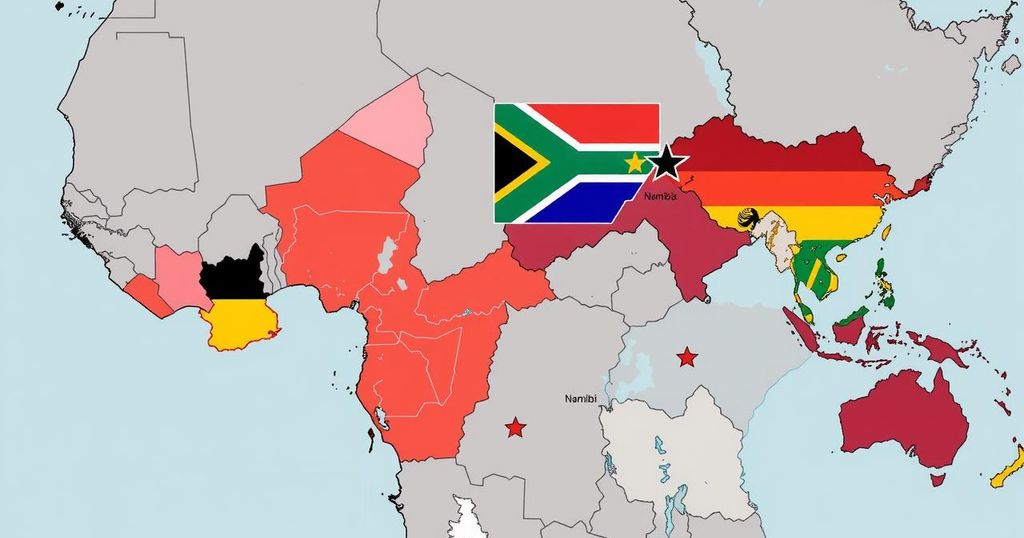Elections in Southern Africa: Political Shifts and Calls for Change
The 2024 elections in Southern Africa reveal a significant shift in political dynamics, particularly in South Africa, Mozambique, Botswana, and Namibia. South Africa’s ANC lost its majority, creating a coalition government amidst Jacob Zuma’s continued influence. Botswana saw the UDC replace the longstanding BDP due to economic grievances, while Frelimo maintained power in Mozambique amid controversy. Namibia’s SWAPO retained its position despite growing calls for change, indicating a complex political landscape across the region.
The elections in Southern Africa in 2024 reveal significant political dynamics, particularly in South Africa, Mozambique, Botswana, and Namibia. In South Africa, the ruling African National Congress (ANC) lost its majority, giving rise to coalition governance, while Jacob Zuma’s influence continues to resonate among voters seeking representation. Conversely, Botswana experienced a political shift as the Botswana Democratic Party (BDP) lost its stronghold to the Umbrella for Democratic Change (UDC), indicating public dissatisfaction with economic management, particularly among youth. The elections in Mozambique have been marred by accusations of electoral fraud, yet Frelimo managed to maintain power, highlighting ongoing unrest and the demand for change. Namibia, on the other hand, reaffirmed its status quo with SWAPO’s continued dominance, although the candidacy of a woman may suggest a slight shift in the political landscape. Overall, these elections reflect a growing discontent with former liberation movements and a demand for accountability and reform in governance.
The elections in Southern Africa often mirror deep political and economic concerns stemming from the legacies of liberation movements. Countries like South Africa, Mozambique, Botswana, and Namibia historically witnessed the dominance of political parties that emerged from anti-colonial struggles. In contemporary times, a generational shift is evident as newer voters prioritize immediate social issues, such as unemployment and economic vitality, over past liberation narratives. This evolution highlights the complexities of governance in a region that has faced prolonged legacies of inequality and economic challenges.
In conclusion, the 2024 elections in Southern Africa signal a crucial turning point for established political structures. The shift in Botswana and the tumult in Mozambique exemplify a burgeoning demand for accountability and responsive governance, as traditional liberation movements grapple with an increasingly vocal and diverse electorate. As evidenced by voter sentiments across these nations, a new era of political consciousness is emerging, one that prioritizes economic stability, social justice, and effective leadership.
Original Source: www.fairobserver.com




Post Comment